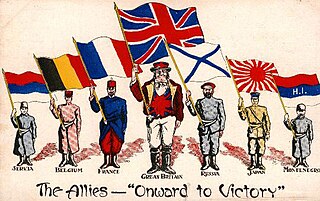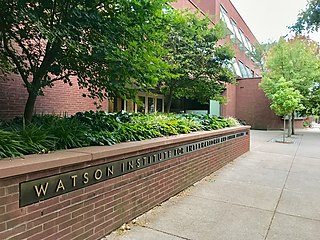Related Research Articles
The foreign relations of Afghanistan are in a transitional phase since the 2021 fall of Kabul to the Taliban and the collapse of the internationally-recognized Islamic Republic of Afghanistan. No country has recognised the new regime, the Islamic Emirate of Afghanistan. Although some countries have engaged in informal diplomatic contact with the Islamic Emirate, formal relations remain limited to representatives of the Islamic Republic.

Zalmay Mamozy Khalilzad is an American diplomat and foreign policy expert. Khalilzad was U.S. Special Representative for Afghanistan Reconciliation from September 2018 to October 2021. Khailzad was appointed by President George W. Bush to serve as United States Ambassador to the United Nations, serving in the role from 2007 to 2009. Khalilzad was the highest ranking Muslim-American in government at the time he left the position. Prior to this, Khalilzad served in the Bush administration as Ambassador to Afghanistan from 2004 to 2005 and Ambassador to Iraq from 2005 to 2007.

The Oil-for-Food Programme (OIP) was established by the United Nations in 1995 to allow Iraq to sell oil on the world market in exchange for food, medicine, and other humanitarian needs for ordinary Iraqi citizens without allowing Iraq to boost its military capabilities.

DynCorp, formally DynCorp International, was an American private military contractor. Started as an aviation company, the company also provided flight operations support, training and mentoring, international development, intelligence training and support, contingency operations, security, and operations and maintenance of land vehicles. DynCorp received more than 96% of its more than $3 billion in annual revenue from the U.S. federal government. The corporate headquarters were in an unincorporated part of Fairfax County near Falls Church, Virginia, while the company's contracts were managed from its office at Alliance Airport in Fort Worth, Texas. DynCorp provided services for the U.S. military in several theaters, including Bolivia, Bosnia, Somalia, Angola, Haiti, Colombia, Kosovo and Kuwait. It also provided much of the security for Afghan president Hamid Karzai's presidential guard and trained much of the police forces of Iraq and Afghanistan. DynCorp was also hired to assist recovery in Louisiana and neighboring areas after Hurricane Katrina. The company held one contract on every round of competition since receiving the first Contract Field Teams contract in 1951.

A Provincial Reconstruction Team (PRT) was a unit introduced by the United States government, consisting of military officers, diplomats, and reconstruction subject matter experts, working to support reconstruction efforts in unstable states. PRTs were first established in Afghanistan in early 2002, and were used in Iraq as well. While the concepts are similar, PRTs in Afghanistan and Iraq had separate compositions and missions. Their common purpose, however, was to empower local governments to govern their constituents more effectively.

The history of the United States from 1991 to 2008 began after the dissolution of the Soviet Union. The dissolution signaled the end of the Cold War and left the U.S. unchallenged as the world's sole superpower. The U.S. took a leading role in military involvement in the Middle East. The U.S. expelled an Iraqi invasion force from Kuwait, a Middle Eastern ally of the U.S., in the Persian Gulf War. On the domestic front, the Democrats won a return to the White House with the election of Bill Clinton in 1992. In the 1994 midterm election, the Republicans won control of Congress for the first time in 40 years. Strife between Clinton and the Republicans in Congress initially resulted in a federal government shutdown following a budget crisis, but later they worked together to pass welfare reform, the Children's Health Insurance Program, and a balanced budget. Charges from the Lewinsky scandal led to the 1998 impeachment of Clinton by the House of Representatives but he was later acquitted by the Senate. The U.S. economy boomed in the enthusiasm for high-technology industries in the 1990s until the NASDAQ crashed as the dot-com bubble burst and the early 2000s recession marked the end of the sustained economic growth.

Nation-building is constructing or structuring a national identity using the power of the state. Nation-building aims at the unification of the people within the state so that it remains politically stable and viable in the long run. According to Harris Mylonas, "Legitimate authority in modern national states is connected to popular rule, to majorities. Nation-building is the process through which these majorities are constructed." In Harris Mylonas's framework, "state elites employ three nation-building policies: accommodation, assimilation, and exclusion."
Benon Vahe Sevan was the head of the United Nations' Oil-for-Food Programme, established in 1996 and charged with preventing Iraq's government from using the proceeds from oil exports for anything but food, medicine and other items to benefit the civilian population.
Claudia Rosett was an American author and journalist. An editorial board member of The Wall Street Journal, she was the only print journalist to witness the Tiananmen Square massacre and later broke the United Nations’ Oil for Food scandal, the largest public fraud in history. After her Journal career in Hong Kong, Moscow, and New York, she wrote a foreign affairs column for Forbes, blogged for PJ Media, and made regular appearances on national television and radio, including Fox Business. She also worked for the Independent Women's Forum and the London Center for Policy Research, and served as an adjunct fellow at the Hudson Institute.

The Brown Journal of World Affairs is a biannual academic journal of international relations and foreign policy produced at Watson Institute for International and Public Affairs at Brown University. It was founded in 1993 as the Brown Journal of Foreign Affairs by Daniel Cruise, Alex Scribner, and Michael Soussan. The journal features essays written by world leaders, policymakers, and prominent academics. Each issue is composed of three thematic sections dedicated to exploring different topics in contemporary international politics and economics. In addition, each issue includes an open essay section, in which a wide variety of global issues are discussed.
On 6 August 1990, four days after the Iraqi invasion of Kuwait, the United Nations Security Council (UNSC) placed a comprehensive embargo on Iraq. The sanctions stayed largely in force until 22 May 2003, and persisted in part, including reparations to Kuwait. The original stated purposes of the sanctions were to compel Iraq to withdraw from Kuwait, to pay reparations, and to disclose and eliminate any weapons of mass destruction (WMD).
Richard Roth is an American journalist, a CNN correspondent who covers the United Nations. He was the host of Diplomatic License, a weekly program that was devoted to United Nations affairs. Roth is a CNN "original" — one of the first employees when the network launched in 1980. He has covered a wide range of stories over the last 25 years, from the 1989 Tiananmen Square protests to the fall of the Berlin Wall and the first Gulf War.

David Howell Petraeus is a retired United States Army general and public official. He served as Director of the Central Intelligence Agency from September 6, 2011, until his resignation on November 9, 2012. Prior to his assuming the directorship of the CIA, Petraeus served 37 years in the United States Army. His last assignments in the Army were as commander of the International Security Assistance Force (ISAF) and commander, U.S. Forces – Afghanistan (USFOR-A) from July 4, 2010, to July 18, 2011. His other four-star assignments include serving as the 10th commander, U.S. Central Command (USCENTCOM) from October 13, 2008, to June 30, 2010, and as commanding general, Multi-National Force – Iraq (MNF-I) from February 10, 2007, to September 16, 2008. As commander of MNF-I, Petraeus oversaw all coalition forces in Iraq.
Beginner Books is the Random House imprint for young children ages 3–9, co-founded by Phyllis Cerf with Ted Geisel, more often known as Dr. Seuss, and his wife Helen Palmer Geisel. Their first book was Dr. Seuss's The Cat in the Hat (1957), whose title character appears in the brand's logo. Cerf compiled a list of 379 words as the basic vocabulary for young readers, along with another 20 slightly harder "emergency" words. No more than 200 words were taken from that list to write The Cat in the Hat. Subsequent books in the series were modeled on the same requirement.

Vali Reza Nasr is an Iranian-American academic and author, specializing in the Middle East and the Islamic world. He is Majid Khaddouri Professor of International Affairs and Middle East Studies at the Johns Hopkins School of Advanced International Studies (SAIS) in Washington, D.C. He served as the eighth dean of the school from 2012 to 2019. Nasr is also a Non-Resident Fellow in South Asia at Atlantic Council and is described by The Economist as "a leading world authority on Shia Islam".

Denmark–United States relations are the bilateral relations between Denmark and the United States of America. Both countries are members of the Arctic Council, OECD, OSCE, NATO and the United Nations.

Finland and the United States currently have good relations. The United States was one of the first countries to recognize Finland after it declared independence in 1917, and officially established diplomatic relations in 1920. Due to World War II and Soviet pressure, relations were suspended between 1942 and 1945 before being raised to embassy level in 1954. Finland has been of strategic importance to the United States due to its position bordering the Soviet Union and later Russia, and after the end of the Cold War in 1991 Finland's shift to the West has led to warmer relations. There is significant trade activity, including military procurement, between the two countries. The United States supported Finlanď's NATO membership during Finland's accession into NATO, which was finalized on 4 April 2023.
The Oil-for-Food Program Hearings were held by the U.S Senate Permanent Subcommittee on Investigations beginning in 2004 to investigate abuses of the United Nations (UN) Oil-for-Food Programme in which the economically sanctioned country of Iraq was intended to be able to sell limited amounts of oil in exchange for vital food and medicine for its population.

Backstabbing for Beginners is a 2018 political thriller film directed and co-written by Per Fly, and based on the memoirs of Michael Soussan. It follows the real life corruption scandal in the UN Oil-for-Food Programme, and stars Theo James and Ben Kingsley.
Jean-Bernard Mérimée is a former French diplomat. In 2005 he admitted to accepting bribes in connection to the Oil-for-Food Program.
References
- ↑ "A somewhat indiscreet look inside the murky world of UN diplomacy". The Irish Times .
- ↑ "Michael Soussan Bio". Michael Soussan.
- ↑ "Theo James, Per Fly & Michael Soussan Discuss Their Film, "Backstabbing for Beginners"". Build. 17 April 2018.
- 1 2 3 4 Palmer, Joanne. "Michael Soussan talks about what he's learned from his kickback scandal". jewishstandard.timesofisrael.com. Retrieved 15 January 2022.
- ↑ Soussan, Michael (1 June 2010). Backstabbing for Beginners: My Crash Course in International Diplomacy. PublicAffairs. p. 34. ISBN 978-1-56858-441-6.
- ↑ Cruise, Daniel; Soussan, Michael (2003). "Ten Year Retrospective". The Brown Journal of World Affairs. 10 (1): vii–viii. JSTOR 24590590.
- ↑ Rosett, Claudia. "Amnesia, Followed By Near-Total Recall". Forbes. Retrieved 15 January 2022.
- ↑ Soussan, Michael. "The Myth of Neutrality". NY Times. Retrieved 26 October 2022.
- ↑ Soussan, Michael (31 May 2004). "Black Gold". The New Republic. Retrieved 26 October 2022.
- ↑ Soussan, Michael (8 October 2014). "The Challenge of Urban Warfare with ISIS". Wall Street Journal. Retrieved 26 October 2022.
- ↑ Soussan, Michael (August 2011). "Afghan Women at a Crossroads". Huffington Post. Retrieved 28 October 2022.
- ↑ Soussan, Michael. "Condemning 'Chemical Ali' is not enough". International Herald Tribune. Retrieved 28 October 2022.